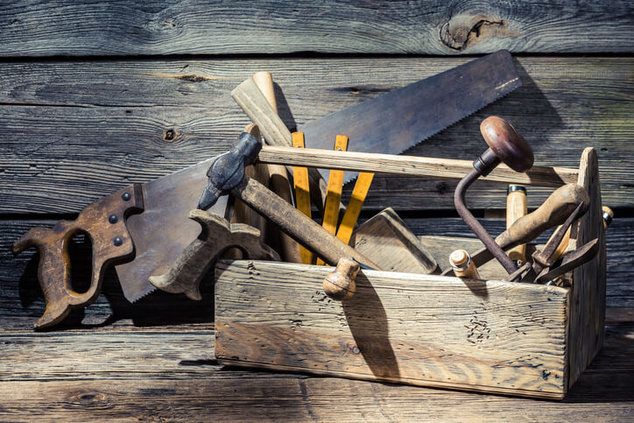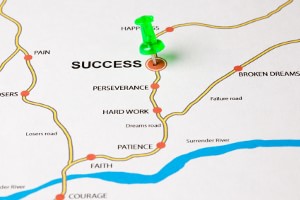How to profit from economic cycles
(Since April is Financial Literacy Month, a number of articles will be devoted to more educational topics. This is Part IV in a four-part series about how understanding economic cycles could inform your financial decisions. Part I is Understanding economic cycles: An introduction. Part II is Recognizing economic seasons: recovery and growth. Part III is The fall and winter seasons of the economic cycle.)
In the first three parts of this series, you saw how the economy moves in cycles of seven to 10 years, and how each cycle can be broken down into four phases which correspond closely to the seasons of nature. We also looked at some of the telltale signs of economic activity that can help us recognize where we are in the cycle.
You may be thinking, "That's all interesting, but how can I apply that knowledge to my personal financial life?" Let's start by decapitating the elephant in the room -- market-timing. Market-timing is a fool's game. However, most of the time market-timing refers to trying to find the high point in the market to sell high. It is true: Nobody is able to tell when a market has reached its peak.
The fall and winter seasons of the economic cycle
(This is Part III in a four-part series about how understanding economic cycles could inform your financial decisions. Part I is Understanding economic cycles: An introduction. Part II is Recognizing economic seasons: recovery and growth. Part IV is How to profit from economic cycles.)
You will recall from Part II of this short series about economic seasons that the spring of early recovery and the summer growth season resemble the corresponding seasons in nature fairly closely. In this post, we will look at the other two seasons of the economy: fall and winter.
But before we do, it is important to keep in mind that, though the seasons in nature change every three months, the seasons of an economic cycle do not have a fixed length. In terms of economic cycles, a season can last years; and it is difficult to set a calendar to know when the season changes.
As in nature, we have two change seasons (spring and fall) and two main seasons (summer and winter). Last time we looked at one of each. Here are the other two.
Recognizing economic seasons: Recovery and growth
(Since April is Financial Literacy Month, a number of articles will be devoted to more educational topics. This is Part II in a four-part series about how understanding economic cycles could inform your financial decisions. Part I is Understanding economic cycles: An introduction. Part III is The fall and winter seasons of the economic cycle. Part IV is How to profit from economic cycles.)
In Part I of this series, the introductory post about economic cycles, we discussed the fact that the economy, while growing over the long term, moves in up-and-down cycles and that each cycle can be broken down into four phases that mirror the four seasons of nature. In this section, we will explore what we identified as the spring and summer seasons of the economic cycle by considering two fictional crop farmers (Farmer Fred and Farmer Claude) whose livelihoods depend on how well they manage their work each season.
Farmer Fred is a successful farmer; but his neighbor, Claude, less so. (We'll just call him Farmer Clod.) But let's dive into the seasons and see what each does that causes them to be successful or not. Nature programs always begin with the newness of spring, so why don't we start there?
Understanding economic cycles: An introduction
(Since April is Financial Literacy Month, a number of articles will be devoted to more educational topics. This is Part I in a four-part series about how understanding economic cycles could inform your financial decisions. Part II is Recognizing economic seasons: recovery and growth. Part III is The fall and winter seasons of the economic cycle. Part IV is How to profit from economic cycles.)
Getting rich slowly is built on these four commonly understood pillars:
- Get out of debt (and stay out of debt)
- Find ways to earn more
- Spend less than you earn
- Invest the difference
Despite the fact that many people followed those four guiding principles during the Great Recession, some "got poor quickly" instead. I believe that is because there is something else to know about the economy and how it affects our finances. This post is the first in a short series explaining what I understand about the economy and its seasons.
How to achieve long-term financial goals
In my last post, I talked about how personal finance is about playing the long game and "making choices that are harder in the short term for the good of the long term." But when the payoff is so many years down the road, it can be difficult to stay on track. In order to actually reach long-term goals, you have to keep making the right choices day after day. How easy is it to fall off the wagon a week or two after you start a new diet, for instance? You need a game plan for the short term that supports your long game too.
Establish Priorities
Especially when you are young, there are just so many goals to strive for simultaneously. For example, Jake and I currently have the following goals:
-
House projects. We replaced our HVAC and decided solar panels aren't for us right now, but we still need to demolish a corroded metal shed and resurface our back deck.
Personal finance and the long game
When you think about it, personal finance is about playing the long game. Sure, it's about other things as well. It's about paying off debt. It's about spending less than you earn. But when you think about it overall, it's about making choices that are harder in the short term for the good of the long term. Here's what I mean….
Saving for retirement
Saving for retirement, for example, means having less money to spend today. Having less to spend today can help avoid lifestyle inflation, which is generally regarded as a good thing.
However, there are plenty of responsible things that could be done in the short term with that money. For example, you could pay off debt or give to a charitable cause that is meaningful to you. You could stash that cash in an emergency fund or eat organic foods and hire a personal trainer. Continue reading...
10 tax breaks for 20-somethings
When I was in my 20s, I was single, without kids, renting, had graduated from college, working at my first job and no interest whatsoever in taxes. My feeling was, Why should I waste time thinking about taxes? As a single, renter with no kids, I would get absolutely no deductions or credits -- and in addition to that, I had nothing to itemize. That meant I should have just filled a 1040EZ and been done with it, right? Right?
Most of us who are starting our financial journey think this. It is not always true. The assumption that paying attention to taxes at this stage provides little benefit, can result in us losing out on a lot!
That is why I decided to write this post, focusing on people in their 20s -- to get their attention, and to tell them there are reasons to take a second look at their taxes (though taxpayers of any age can equally take advantage of these deductions/credits).
How to ladder CDs

How to build a CD ladder? It's a great question -- unless you have no idea what a CD "ladder" even is. Let's start at the beginning. A CD ladder is a method of staggering the maturity dates of certificates of deposits so you can invest your money safely and still keep some of it easily available for emergencies.
The Federal Deposit Insurance Corporation (FDIC) insures certificates of deposit (or time deposits) just like they insure savings accounts -- so they are just as safe.
5 military tax deductions service members can claim but often don’t

As an active-duty military member, preparing and filing your tax return can be a nightmare. Regardless of your duties or where you're stationed, tax season will cause you to stop what you're doing to complete this important task.
However, Uncle Sam has taken into account your unique lifestyle with special tax laws. These include the extension of deadlines for filing and paying taxes while on active duty in a combat zone. But did you know that there are quite a few military tax deductions and credits that are hardly claimed?
Hidden advantages of savings accounts
Savings accounts? Are you crazy? Boo, hiss. These days, savings accounts are only used as joke fodder for late-night comedians, but there are benefits of a savings account. Take the mom who wants to teach her kids the value of prudent financial management, for example:
For little Bobby's eighth birthday, his mother takes him down to the local credit union to open a savings account. Figuring that all the grownups in his life would pour money into this new savings account to encourage him -- without his lifting a finger -- Bobby reasons that the offer is hard to beat. So, off to the credit union they go.
At his mother's prompting, Bobby explains to the banker that he came to open a savings account. The banker gives a knowing glance to the mother and pushes the application form across the desk to Bobby. "Well, sir, this is your account, so you have to fill it out."


